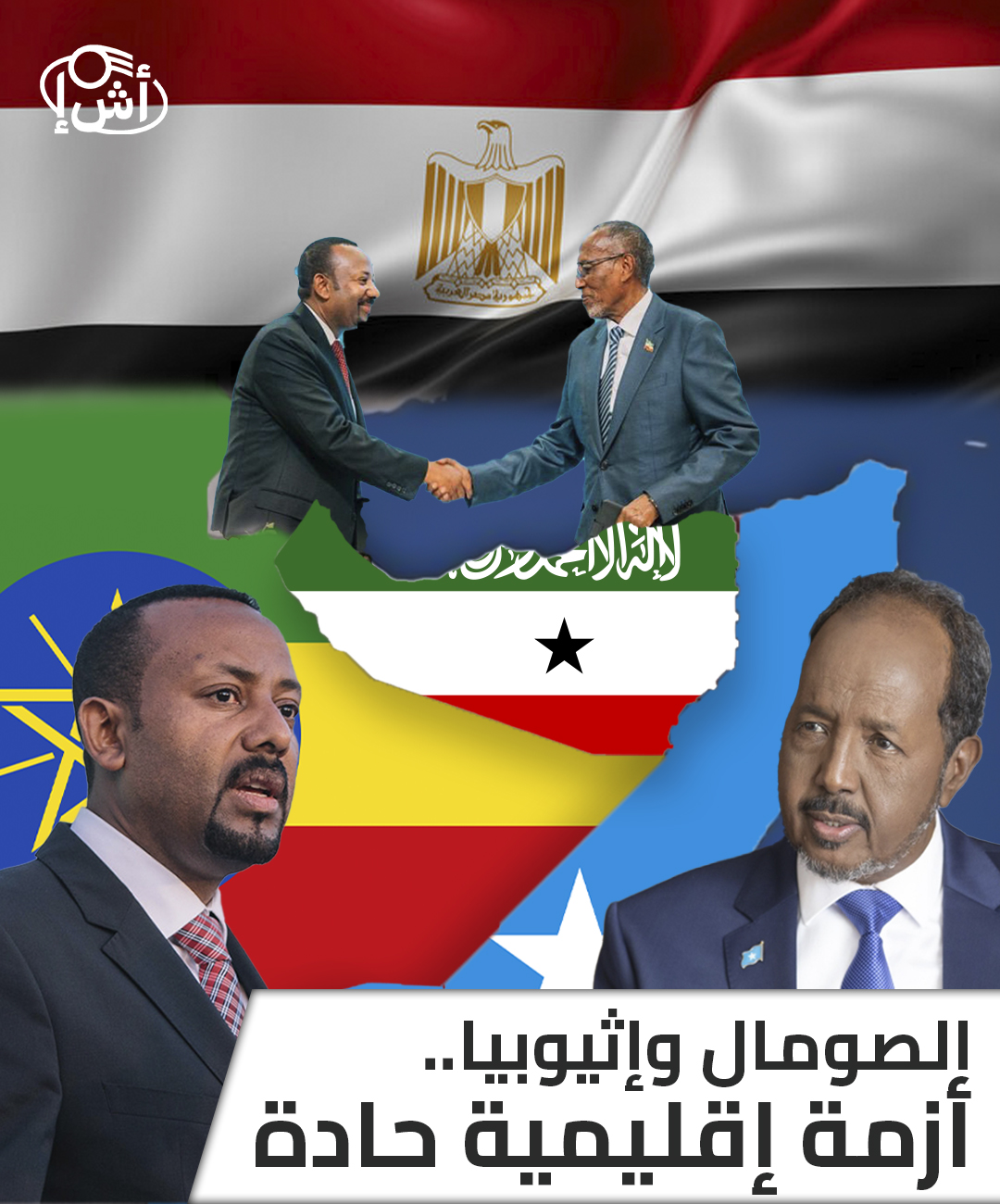The differences between Somalia and Ethiopia pose a profound challenge to African cooperation in general, as the differences between the two countries, which have worsened over Somaliland, are interacting rapidly, and affecting all countries in the region.
These differences add to a number of political tensions plaguing the Horn of Africa, at a time when relations in those countries need new coordination to confront security risks in Sudan, food or even water as a result of disputes over the sharing of Nile water.
Somalia earlier accused Ethiopia of trying to obstruct the participation of his delegation in the African Union summit in Addis Ababa, considering this a violation of international protocols and an attempt to isolate it from political participation and present its point of view on the differences between it and Ethiopia, as the Horn of Africa region faces increasing diplomatic and security challenges after Ethiopia signed an agreement with the Somaliland region, giving it maritime access to the port of Berbera and recognizing the region as an independent state, and this step provoked strong reactions in Mogadishu, which considers the region an integral part. and led to political and diplomatic tensions with Egypt, the African Union, and other international actors.

Somaliland, which declared its secession in 1991 and did not receive international recognition, seeks to be recognized as an independent state through this agreement, while the Somali government suffers from its inability to impose its control over the region, and at the same time rejected any mediation without Ethiopia’s withdrawal from the agreement, stressing its opposition to any violations of its sovereignty and territorial integrity, and obtained support for its position from the Arab League and the African Union, which called for respect for the unity and sovereignty of Somalia.
The Somali Council of Ministers issued a decision canceling the memorandum of understanding signed between Ethiopia and the separatist region of “Somaliland”, on achieving Ethiopian aspirations towards access to the Red Sea, and the resolution also stipulates the rejection of the Somali federal government memorandum of understanding and cooperation between Ethiopia and the region, stressing that it is part of Somalia, in accordance with local laws and international and regional norms.

This crisis affected the African continent in general, so the African Union called for respect for the sovereignty and territorial integrity of Somalia, and Egypt warned that Ethiopia has become a source of turmoil in the region, and international attention to the crisis shows the importance of the stability of the Horn of Africa region on the overall regional and global security, and for its part, Egypt expressed its concern about the agreement, stressing the need to respect the sovereignty and territorial integrity of Somalia, and the Egyptian Foreign Ministry issued a statement condemning the agreement, considering Ethiopia a source of instability in the regional environment, and stressed the importance of All parties to international laws that protect the sovereignty and territorial integrity of states.
The positions issued by all regional parties indicate that the crisis will not recede its consequences on Somalia and Ethiopia only, as there are fears that it will extend to include effects on the stability of the entire Horn of Africa, as the agreement between Ethiopia and Somaliland, according to some experts, carries the risks of an arms race and increased foreign interventions, which jeopardizes efforts aimed at regional development and peace.
In practice, the international position left the crisis within the African arena, stressing the importance of stability in the Horn of Africa region to ensure regional security, while calling on the United Nations and other regional organizations to intervene and help resolve the crisis in a way that preserves the rights of Somalia and stresses the importance of preserving the territorial integrity of member states.
According to the course of this crisis, it constitutes a possible turning point in relations within the Horn of Africa, and also affects all other diplomatic tracks that try to resolve similar issues, and perhaps more severe, such as the war in Sudan.
Written by Mazen Bilal
